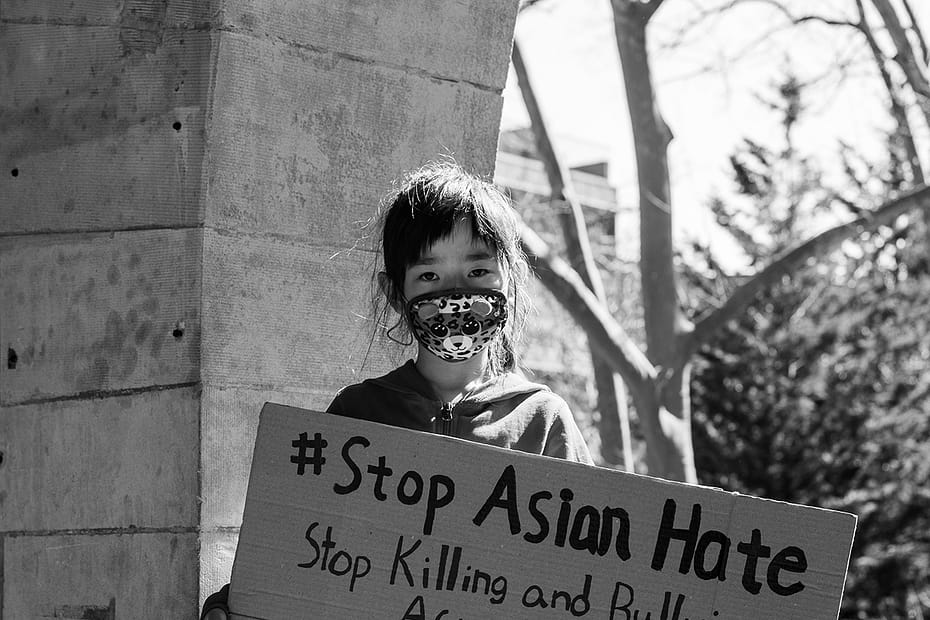I’m old enough to remember when a mass shooting was an anomaly. An oddity. An outlier. Now, it seems mass shootings have become an expected part of our society. It’s no longer a matter of if, but when and how many. Sadly, racially motivated attacks have been with us for far too long. What’s to be done? What power do we have? An important thing is to never let these egregious acts become normalized. Racially motivated hate and bigotry should never be normalized and accepted as, “that’s just the way some people are”. Apathy does not work or keep people safe from harm. We guard against numbness, fatigue, and apathy by reminding ourselves: This is not normal. We remain outraged, outspoken, and engaged. We grieve; we comfort, and then we rise to fight another day. We remember that even when our particular group is not directly impacted, we are all in this together.
In that spirit, we stand in solidarity with the Asian Americans and Pacific Islanders (AAPI) community. Everyone has the right to live fully as human beings free from fear, hate, violence, and discrimination. And if you think this is happening somewhere else, think again. Our AAPI neighbors right here in Lebo have been experiencing harassment and discrimination. You can help. Read some tips from USA Today and The Associated Press below.
—Stephanie Edmond-Myers, M.O.R.E Steering Committee Member
Photo by Jessica Irani on Unsplash
Where to donate to help Asian communities, and how to organize
A host of organizations could use your donations, including but not limited to:
- Hate Is A Virus
- Asian Americans Advancing Justice
- Asian Pacific American Labor Alliance (APALA)
- Asian Pacific American Leadership & Advancement (IAPALA)
New York Magazine has a list of over 50 ways you can support the Asian communities.
Read before you share resources. As is typical with social media, many people share social posts on platforms like Instagram and Twitter offering statistics, resources, and places to donate. Make sure the posts you’re sharing are rooted in facts because even the most well-intentioned person could spread misinformation. Also consider whether groups are advocating for unity between minority groups, like Black and Asian people.
Learn how to organize. Actor Daniel Dae Kim told USA TODAY this month that a lot can happen on a local level: “We need to be able to contact our local (district attorneys) and the Department of Justice to discuss how we can deter (these crimes) and how we can prosecute them properly. There’s a lot we can do to foster understanding among communities. The Pittsburgh chapter of the Asian Pacific American Labor Alliance, or APALA, is working to spread awareness and advance worker, immigrant, and civil rights.
Reach out to your Asian friends and colleagues – but don’t ask them to educate you
Anti-Asian racism, like any form of racism, isn’t new.
Read up on the history of and present-day anti-Asian racism in the U.S. This can be done through news articles. Consider documentaries and news programs that feature information on the subject. Netflix’s “Amend” touches on anti-Asian history in its sixth episode. Consider reading books by Asian American and Pacific Islander authors, too.
Remember that racism can be unlearned. Jeannie Mai, host from “The Real” says, “Racism is taught. And it may not be your parents sitting you down telling you specifically like, ‘Don’t trust those Asians. Don’t be friends with Black people.’ No, I think it’s in every grain of your upbringing.”
In order to unlearn racism, you need to question your own privileges, take a look at the media you consume, and accept the fact you will make mistakes. Also, apologize and own up to your mistakes.
Sometimes your first instinct may not be the best instinct when reaching out to friends or colleagues. CNBC’s “Make It” has helpful tips for those looking for guidance in the workplace.
One key point: Don’t ask “How are you feeling?” or “Is there anything I can do for you?” as this puts the onus on them. Consultant and author Kim Tran suggests saying something more like: “I know the news is stressful. Can I help you with anything workwise?”
What to do if you see anti-Asian racism
Get proper training. Hollaback!, an organization working to end harassment, is working with Asian Americans Advancing Justice on free bystander intervention training geared to aiding the Asian and Asian American communities. You can sign up here for that as well as conflict de-escalation training.
Follow safety tips. Stop AAPI Hate recommends these five safety steps if you are a witness to anti-Asian racism:
- Take action. Go to the targeted person and offer support.
- Actively listen. Before you do anything, ask – and then respect the targeted person’s response. If need be, keep an eye on the situation.
- Ignore attacker. Try using your voice, body language, or distractions to de-escalate the situation (though use your judgment).
- Accompany. Ask the targeted person to leave with you if whatever is going on escalates.
- Offer emotional support. Find out how the targeted person is feeling and help them determine what to do next.
Continue Learning
Nicole Ford, “Pittsburgh Group Bringing Awareness To Rise Of Anti-Asian Attacks” (Mar. 17, 2021). CBSN Pittsburgh.
Timothy J. Steinhauer, Ed.D., “Response to Violence and Discrimation against Asian Americans” (Mar. 19, 2021). Mt. Lebanon School District.
Christopher Johnson and Tara John, “Atlanta spa attacks shine a light on anti-Asian hate crimes around the world” (Mar. 22, 2021). CNN.
Bill Chappell and Dustin Jones, “‘Enough Is Enough’: Atlanta-Area Spa Shootings Spur Debate Over Hate Crime Label” (Mar. 18, 2021). NPR.

